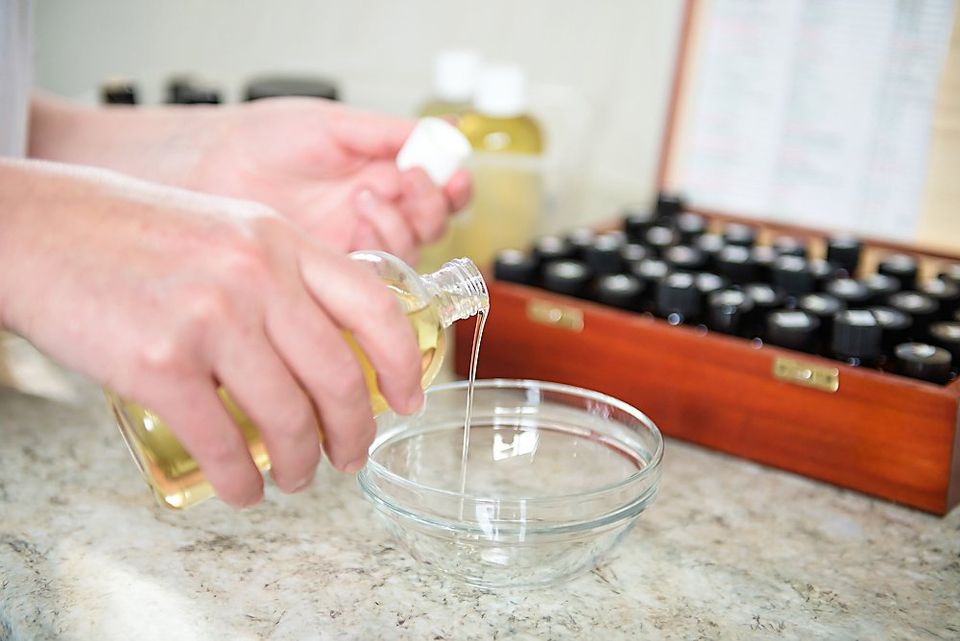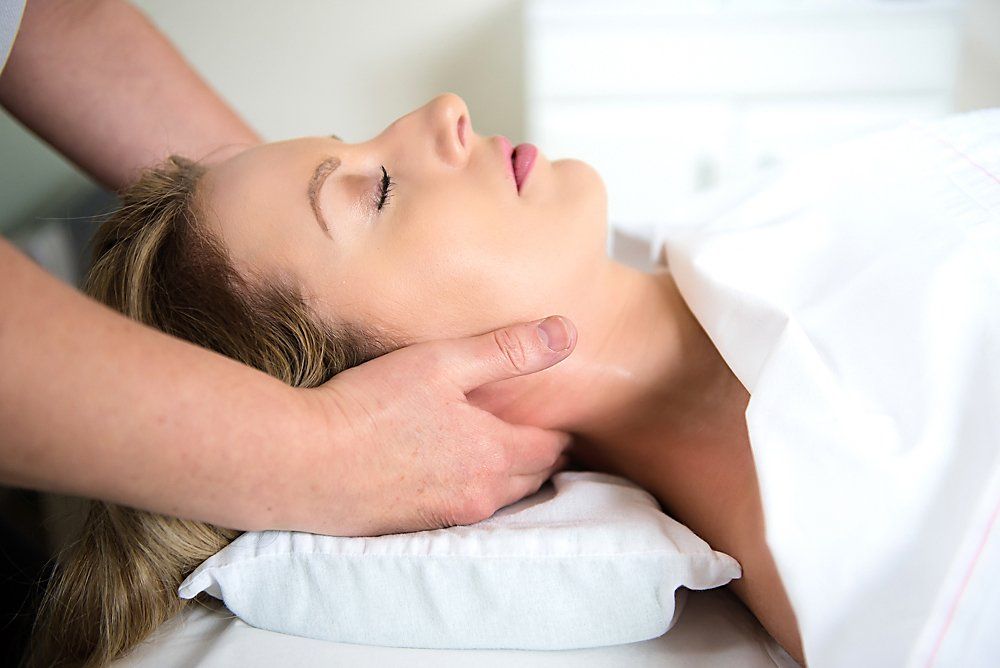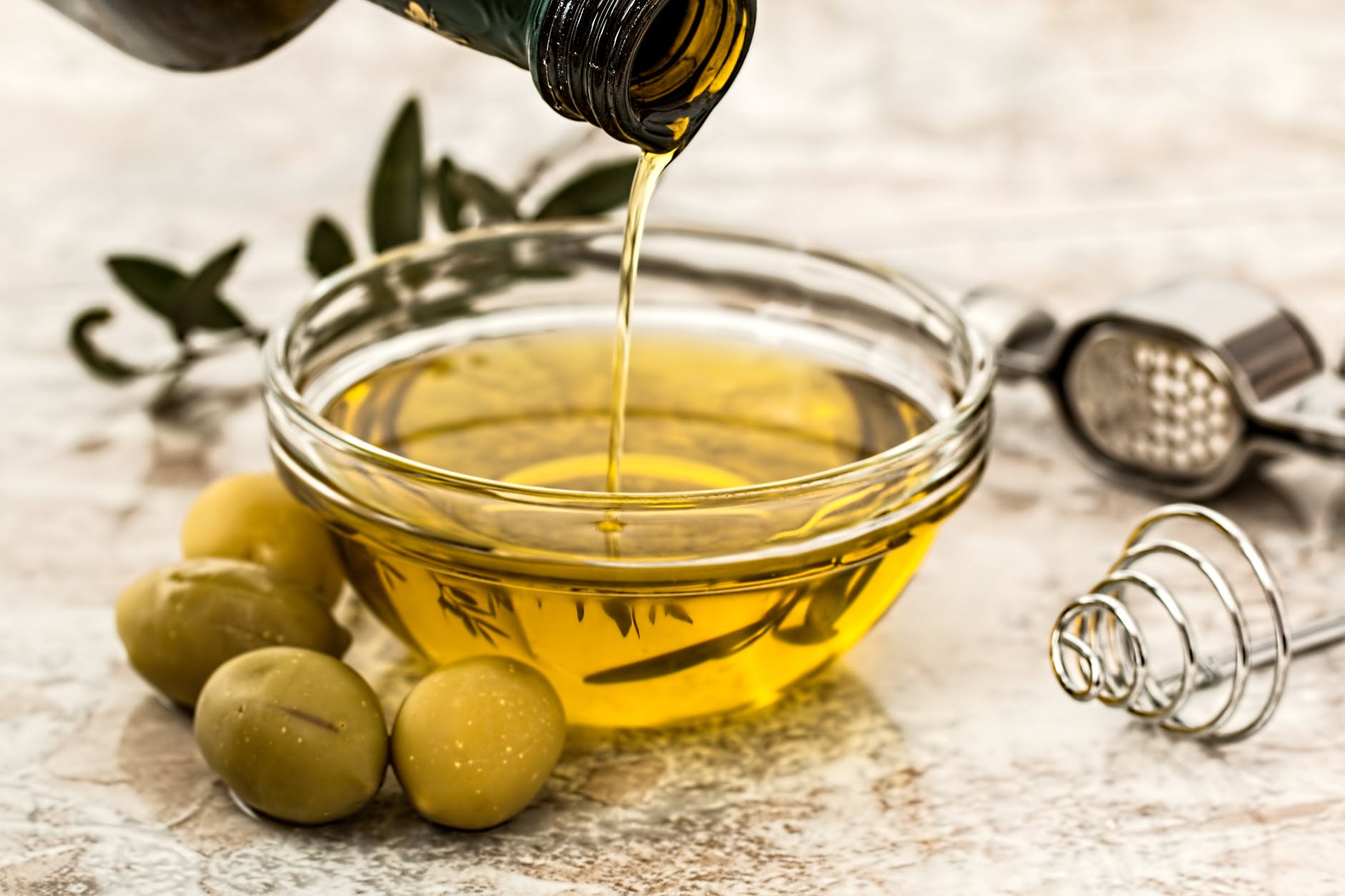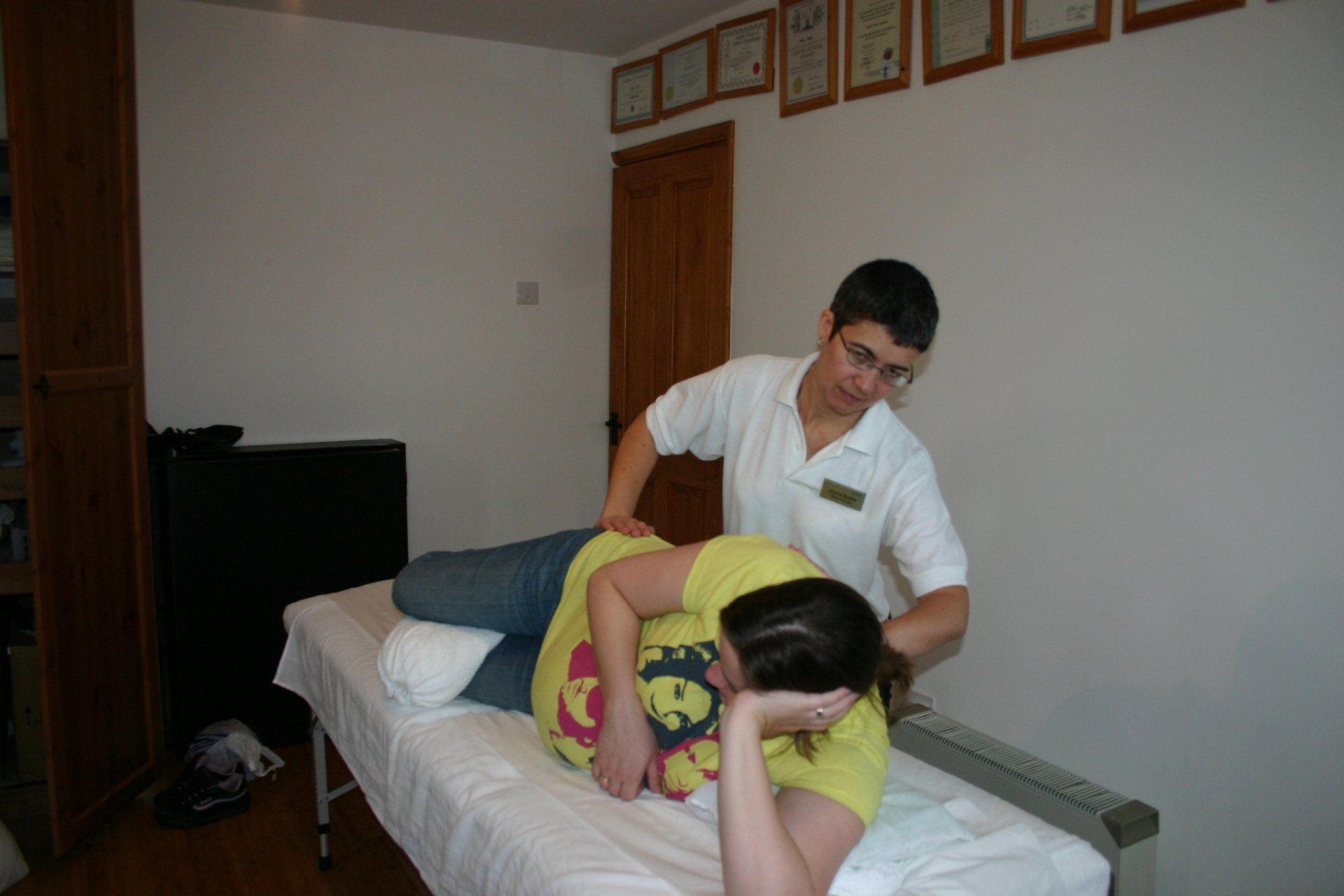Would you put essential oils on your Mask/ Face Covering if you knew the following?
Jayne Burke • August 22, 2020
Why your mask/ face covering should NOT be used to administer Aromatherapy
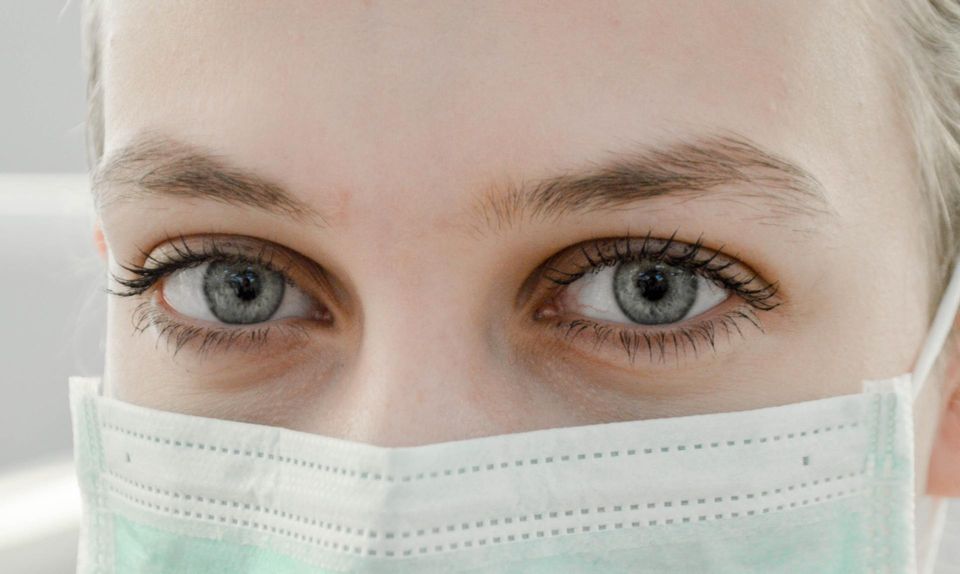
Firstly, I need to say I'm not against Aromatherapy. I love Essential Oils and have been using them since my teens.
Masks/ Face Coverings were NOT designed as a way to administer Aromatherapy. Their intended purpose is to cover your nose and mouth and thus help to reduce the risk of spreading Covid-19. The following outlines some of the reasons why I feel essential oils should NOT be used neat on Masks/ Face Coverings.
Tell me, would you put essential oils on your Mask/ Face Covering if you knew the following?
1. Essential Oils may compromise the efficiency of your mask/ face covering. A wet mask is more liable to virus penetration. Essential oils can damage fabrics and may react with any chemicals in the materials of your mask to form toxic compounds and degrade or melt certain plastics.
2. Essential Oils should be used sparingly
– a face mask/ covering means you cannot get away from it. You are inhaling the same oil all the time you have the mask on, hour after hour, day after day. Even if an oil is a proven sedative, inhaling too much may have the opposite effect. The aromatherapy molecules will stay in your system for a while – you do not need to be constantly inhaling them.
3. Essential Oils should (generally) not be used neat on the skin. Your mask touches your face which places the oils up against your skin, and skin damage could occur (irritation, rash, burn etc.). Sensitisation/ allergy often doesn’t occur on the first application.
4. Your mask/ face covering acts as a form of occlusion
which increases the temperature and the hydration of your skin - increasing the absorption rate of the oil both through inhalation and through the skin.
5. Some essential oils are phototoxic
even when diluted in carrier oils – there is a possibility of a potential skin reaction (burn) when your skin is exposed to sunlight (or sunbed) within the next 12 hours e.g. when you take your mask off outside.
6. You will inflict your choice of essential oils on the people you come into contact with. Because you’ve built up a tolerance to the smell you won’t notice how strong it is, but others may feel assaulted by it.
7. Some essential oils are considered a danger to people
who are pregnant, have specific medical conditions or are on certain medications, to babies, children and to cats and dogs. Although essential oils come from plants and are natural, they still need to be treated with respect.
8. Our nasal passages and mucous membranes are delicate
and I do not feel they should be constantly bombarded by the same essential oils for extended periods of time.
9. Stay Safe! Consult a qualified Clinical Aromatherapist.
I will work with you to develop a Personal Prescription for you – as you develop and grow so your Personal Prescription will need to be tweaked too. The best way to use your Personal Prescription is in an Aromatherapy massage appointment. Your Aromatherapist may also supply it to you for home use in a massage oil, a cream, or a roller ball which you can apply to your skin occasionally, a liquid soap, shampoo or conditioner, in an aromatherapy inhaler, or a sniffer bottle which you can sniff occasionally.
10. Click here to sign up to my newsletter and
get free access to my training video
where I show you a simple solution to ‘Stay Safe’ whilst using aromatherapy and walk you through how to make your very own
About the author
Jayne Burke is a qualified Clinical Aromatherapist. She has been making Aromatherapy Personal Prescriptions (blends) to support the wellbeing of herself, her family, her friends and her clients for over 20 years. As a Holistic Therapist and Body/ Mind Whisperer (Coach), she specialises in helping women release emotional issues which have been buried in their muscle tissues (e.g. think of how people clench a fist when they’re cross). These issues often manifest a few years later under the guise of pain (muscular tension) and stress (overwhelm).
Jayne Burke is a qualified Clinical Aromatherapist. She has been making Aromatherapy Personal Prescriptions (blends) to support the wellbeing of herself, her family, her friends and her clients for over 20 years. As a Holistic Therapist and Body/ Mind Whisperer (Coach), she specialises in helping women release emotional issues which have been buried in their muscle tissues (e.g. think of how people clench a fist when they’re cross). These issues often manifest a few years later under the guise of pain (muscular tension) and stress (overwhelm).
.
Click on the links to find out more about Jayne Burke, Holistic Therapies, or how to start working with Jayne

Purple Hat Age 3: She looks at herself and sees a Queen. Age 8: She looks at herself and sees Cinderella. Age 15: She looks at herself and sees an Ugly Sister (Mum I can’t go to school looking like this!) Age 20: She looks at herself and sees “too fat/too thin, too short/too tall, too straight/too curly”- but decides she’s going out anyway. Age 30: She looks at herself and sees “too fat/too thin, too short/too tall, too straight/too curly” – but decides she doesn’t have time to fix it, so she’s going out anyway. Age 40: She looks at herself and sees “clean” and goes out anyway. Age 50: She looks at herself and sees “I am” and goes wherever she wants to go. Age 60: She looks at herself and reminds herself of all the people who can’t even see themselves in the mirror anymore. Goes out and conquers the world. Age 70: She looks at herself & sees wisdom, laughter and ability, goes out and enjoys life. Age 80: Doesn’t bother to look. Just puts on a purple hat and goes out to have fun with the world. by Erma Bombeck Why wait until you're 80! I support women who want to let go of any unnecessary pain and/ or stress so that you can get on with enjoying your life. Please get in touch if you'd like to find out more about working with me so that you can start changing your life. Jayne Burke Holistic Therapist, Mind/Body Coach, Muscle Whisperer, All Round Good Egg, and Lover of Chocolate . JayneBurke.com

Has mother earth decided we need a bit of a shake up and that we all need to take time out to stop and look at the way most of us are simply existing on a day to day basis and are not living our lives in a way that brings us joy?
Once the Coronavirus Pandemic is over, you could go back to rebuilding the same life you had before or you could work with me and discover the joy of metamorphosising into the beautiful butterfly that is your right…

SATs whether we love them or hate them, with the right preparation, they offer our children an opportunity to learn how to deal with stress. "Last year primary school teachers in a National Education Union (NEU) survey reported children crying, having nightmares and being so stressed they needed extra support to cope with SATs." Why are our children not celebrating trying their best? All year they have been trying their best at school, but suddenly, they are caught up worrying about how the SATs results will show everyone what they can't do. Why are our children so worried about what others might think? Why are they comparing themselves against others or seeking outside reassurance instead of looking inside of themselves to check if they’ve done a good job? "The Kellogg’s research discovered that 30% of ten and eleven year olds confessed their biggest fear was of being embarrassed by their results, with 15% worrying their friends would get better marks and a whopping 40% described their biggest worry during their exams as letting their parents down." These exams are simply a snapshot in time. They are a reflection of what our children have (or have not) been taught, how they have assimilated that information and if they can recall it on the day of the test – which is especially difficult if stress levels are high. Aren’t our school days meant to be the happiest of our lives? Shouldn’t our children be allowed to be children? Should they be encouraged to be inquisitive and soak up knowledge like a sponge because the teachers are enthusiastic about their job and because it piques our children’s interest and stimulates their imagination? Or should they be forced to sit nicely at a desk and have the how to pass the SATs stuff drilled into them? “We have been subject to huge pressures to narrow the curriculum and to replace deep conceptual learning with temporary memorisation of facts and procedures to boost SATs results.” When did the destination become more important than the journey? I remember turning up a little bit early to collect my son after school one day and I was surprised to find the headmaster sat on a chair in the playground playing his guitar with all of the children sat on the floor around him mesmerised as they sang along with his tune. When he saw me, he sheepishly said he was supposed to be doing handwriting with them, but that it was such a lovely afternoon … Do you know what? I was pleased as punch that he’d ditched his planned lesson. That time was golden. The children got so much out of it. There were similar incidents dotted in amongst my son’s time there that I was aware of (e.g. a parent going in to teach the children how to make chutney) and I’m sure there were many more that I’m not aware of. I’m convinced it was times like these that helped to foster a love of school and education amongst the pupils and encouraged both the pupils and the parents to respect the teachers. It has remained in my memory for over 10 years and I believe that our teachers should be encouraged to build in times such as this without worrying about the negative impact it may have on any academic results. "86% of teachers said that “preparation for SAT’s squeeze out other parts of the curriculum.” Children who have a strong inner belief in themselves, left to their own devises, will not be overly concerned about SATs. However, the news, the teachers, the children in the playground, their parents and the chatter from the parents at the school gates may eventually begin to work its way through, eroding their self-esteem and may even have the most outwardly confident child quaking in their boots as they endure the agonising wait for their SATs results. “We've had children crying, making themselves ill and refusing to come to school - even labelling themselves failures - because of these tests.” So imagine what this can do to those who are not overly confident, or those who are already aware that their skills do not lie in maths and English? Put yourself in their shoes for a moment. Might you decide to retreat into yourself or give up trying? Might you try and find a way to get out of taking the SATs or skip school? How will it affect the rest of your time in education? “It reinforces to SEND (Special Educational Needs and Disabilities) children everything they can't do.” “It is painful watching these most vulnerable children being made to feel less than the great human beings they are because they are aware that these activities don't help them to shine.” In this day and age, why are some of our children not eating breakfast? Is it because there is no food available? Is it because they stay up late so they get up too late for breakfast? Is it because parents rush off to work leaving them to their own devices? Is it because an energy drink is quicker? Is it because they feel stressed and their stomach is upset? Kellogg’s research also discovered that just under 10% didn’t eat most mornings of SATs week, with girls as likely as boys to abandon breakfast when under pressure. 4% swapped breakfast for energy drinks or coffee and 2% used cigarettes as an alternative way to get exam ready. Mental health is such a hot topic now (for good reason!). Anything we can do to help smooth our children’s passage through any challenging times has to move up the agenda and take priority. Things will always crop up in our lives but it is so empowering when we recognise that it is up to us if we choose to allow it to stress us out or not. Learning how to relax and how to take things in our stride has to be given the importance that it deserves. My online courses help develop the necessary skills to enable you and your child to glide as smoothly through life as is possible. What can we, as parents, do to help minimise the distress our children are being subjected to? Download my Top Tips for Exams to help reduce stress during exam times With a little bit of help parents can easily learn to be great role models. We simply need to stop stressing out, slow down, stop rushing around all of the time, and learn to take time out with our children to do the simple things in life like stopping to smell the roses or watching a raindrop rolling down a window pane every so often. Try it. I bet any stress you were feeling just melts away as you are caught up in the moment of sharing the beauty of nature with your child. Jayne Burke Holistic Therapist and Happy Hands PAT (Positive Appropriate Touch) Instructor Jayne has been a Holistic Therapist helping people to let go of any unnecessary pain and stress for over 20 years. She is now working with schools in the Gloucestershire area to provide lessons which encourage pupils to develop an understanding of when they start to feel stress. She teaches them a range of breathing exercises and a variety of relaxation exercises so that they can start to manage their feelings of stress before it exacerbates so that they can quickly return to a calm, balanced state. She also works with parents and their children (in group workshops or as private clients) and she is also producing online courses. References: SATs Do Not Benefit Children’s Learning And Are Bad For Their Well-Being – NEU Survey https://neu.org.uk/assessment/sats-do-not-benefit-childrens-learning-and-are-bad-their-well-being-neu-survey Kelloggs Research https://www.kelloggs.co.uk/content/dam/europe/kelloggs_gb/pdf/SATs-week-FINAL.pdf

Your body is a road map of your journey through life so far. Although the physical scars are easily visible on the outside of your skin, the mental and emotional scars are hidden within your muscle fibres and even within each cell structure itself. Weight lifters are great visual examples of how we can deliberately choose to change our body structure by physical exercise. In the same way that repetitive physical actions such as texting or using a mouse or continual physical actions such as lifting a shoulder to keep a handbag on our shoulder will also alter our physical posture over time. Holding muscles tight uses up a lot of energy and will eventually leave you feeling tired or exhausted. Although your initial reason for visiting me may be simply to relieve your pain, as a Holistic Therapist, I am interested in what lies behind the tension within your muscle fibres. What mental or emotional stress did you choose to store within your muscles because you did not feel safe enough to express it at the time. When you instinctively clenched your fist in preparation to punch someone, why did you overrule this instinct so that your fist never made contact with their face? What emotional trauma did you experience at the time and hide away deep within your muscle fibres? This method of repression serves us well at the time (punching our boss never seems to go down particularly well!) but is not good for us on a long term basis. Are you now ready to let go of the muscular tension and thus release the suppressed feelings? Which muscles did you clench to stop yourself from being a baby and crying when someone was saying things that dis-empowered you, making you feel small, and making you want to cry? Now that you’ve reopened the lid on the memory, will you allow my hands to gently ask those muscles to let go of any of their unnecessary tension? Redundancy, divorce, illness? Do you find that your lower back hurts when your (financial) security is threatened? Your body uses an age old language to communicate with you. It tries so hard to tell you when you are slightly out of balance and it begins to whisper its messages to you. Should you ignore these gentle hints, your body then begins to raise its voice and you become aware of more serious aches and pains. Should you again choose to ignore this and carry on in the same manner, your body may eventually need to shout and you may even find yourself incapacitated for a period of time. Recognising that changes need to be made in your life means that transformation will follow and the rest of your life may be much better because of the changes you choose to bring about now. With hindsight, a breakdown can also be seen as a breakthrough. As you begin to release any physical, mental, emotional and spiritual tension and stress, you begin to feel lighter and more energised. The baby brain or menopausal fog seems to lift, so that you can think clearly and you start to feel more human again. Chores no longer get you down, life becomes fun and you start to look forward to what the next day will bring. Seeing you transform your dread of dragging yourself out of your bed for yet another mundane Monday morning into a “Wahoo – I wonder what adventures this week will bring me?” is what I love most about being a Holistic Therapist. I look forward to working with you as a client or on my courses if what I've written interests and resonates with you. Click here if you would like to contact me to book a session or if you have any queries. Click here if you would like to download my "Stop the World, I Want to Get Off!" article along with my why our breath is so important video.

